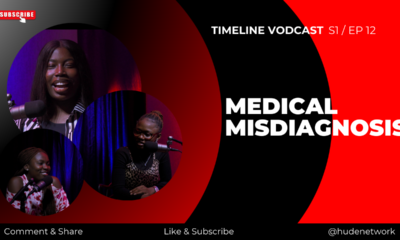News
Exploring the Challenges of Medical Misdiagnosis

When it comes to our overall well-being and sound health, it’s important that we put our trust in the healthcare system as well as the medical professionals who are in charge of making us feel better when we are not at our full medical capacity.
These days, it’s quite concerning that we have to take extra care not to fall victim of medical misdiagnosis, or earnestly hope that a medical professional will not make erroneous diagnosis or make wrong prescriptions to patients.
Medical misdiagnosis happens when a medical practitioner gets a patient’s medical condition wrong. It doesn’t just stop at being an unfortunate error but it could also be life threatening for patients. In 2023, a report linked 800,000 deaths or cases of permanent disability in US each year to medical misdiagnosis.
An example of medical misdiagnosis could be a case of a patient complaining of severe cough, and a doctor prescribing medication for malaria. But on seeking a second medical opinion, it turns out the patient actually has asthma. There are victims of medical misdiagnosis that have had their lives altered. Some are fortunate to have their cases detected early, preventing further complications, while others experience worse outcomes, including fatalities, when their conditions deteriorate unnoticed.
Medical misdiagnosis occurs for so many reasons. Sometimes it’s because the symptoms of different illnesses can be similar, other times it might be due to limited time with the doctor or not having all the necessary information about a person health history. Also, patients sometimes don’t make full disclosure of health complaints to doctors and in some occasions, it could be as a result of negligence on the doctor’s part.
Misdiagnosis can have serious consequences on the people, it could lead to unnecessary treatments which can be harmful and costly. It can also delay getting the right treatment allowing the illness to progress and potentially become harder to treat. For the health professional, it could lead to probation, fine and/ or loss of license.
To avoid misdiagnosis, it’s important to give the doctor as much information as possible about one’s symptoms and health history. It’s always a good practice to ask questions if unsure about the diagnosis or treatment plan and not be afraid to seek a second opinion if in doubts.
In conclusion, medical misdiagnosis requires immediate attention and a collaborative effort to address it because it represents a critical issue within the healthcare system, not only do we have our right to proper health care, quality medical practices should be ingrained in our society.













